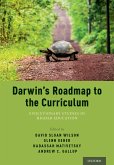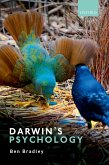Darwin has long been hailed as forefather to behavioural science, especially nowadays, with the growing popularity of evolutionary psychologies. Yet, until now, his contribution to the field of psychology has been somewhat understated. This is the first book ever to examine the riches of what Darwin himself wrote about psychological matters. It unearths a Darwin new to contemporary science, whose first concern is the agency of organisms -- from which he derives both his psychology, and his theory of evolution. A deep reading of Darwin's writings on climbing plants and babies, blushing and bower-birds, worms and facial movements, shows that, for Darwin, evolution does not explain everything about human action. Group-life and culture are also keys, whether we discuss the dynamics of conscience or the dramas of desire. Thus his treatment of facial actions sets out from the anatomy and physiology of human facial movements, and shows how these gain meanings through their recognition by others. A discussion of blushing extends his theory to the way reading others' expressions rebounds on ourselves -- I care about how I think you read me. This dynamic proves central to how Darwin understands sexual desire, the production of conscience and of social standards through group dynamics, and the role of culture in human agency. Presenting a new Darwin to science, and showing how widely Darwin's understanding of evolution and agency has been misunderstood and misrepresented in biology and the social sciences, this important new book lights a new way forward for those who want to build psychology on the foundation of evolutionary biology
Dieser Download kann aus rechtlichen Gründen nur mit Rechnungsadresse in A, B, BG, CY, CZ, D, DK, EW, E, FIN, F, GR, HR, H, IRL, I, LT, L, LR, M, NL, PL, P, R, S, SLO, SK ausgeliefert werden.









